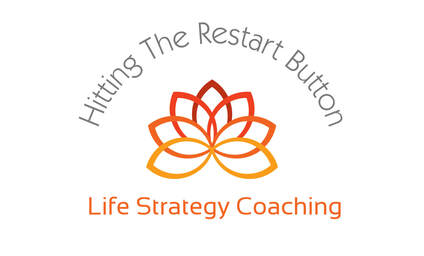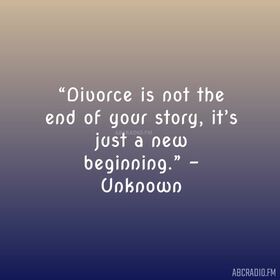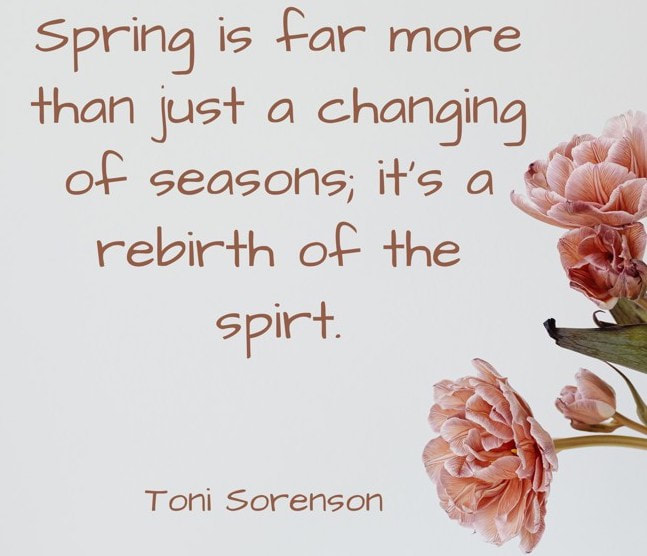|
Today, more than ever, there are resources for almost any need, enabling better outcomes in life endeavors. When it comes to our weddings, we work with wedding planners, when it comes to leveling up our athletic abilities, we hire sports coaches and when it comes to professional success, we engage the services of high powered career and business coaches.
So why is it that when it comes to divorce, which has a huge affect on every aspect of our lives - emotional, financial, residential, parental and long-term living - do we opt to go it alone? I'm talking both from personal and professional experience here. During my own divorce, which, by the way was horrible and traumatic on every level, I mistakenly assumed that my divorce attorney had all the answers that I needed to get me through the process and secure a successful outcome. I could not have been more incorrect in my assumption! Not only was I wrong in relying solely on my attorney to fill the plethora of professional needs that were suddenly cast upon me, but the result of doing so had negative lasting effects on my life (and that of my children) long after my divorce was finalized. My harrowing ordeal led to my mission to devise a means to minimize distress and maximize triumph through divorce for others. Divorce coaching can make this difference between floundering through the abyss of divorce as a novice versus marching through confidently armed with a charted course like a skilled navigator. With this in mind, obtaining coaching prior to "pulling the trigger", or in legal terms, "filing for divorce" ensures better navigation of the divorce journey and post-divorce outcomes. Here are 8 reasons why your first professional meeting should be with a divorce coach: 1. Informs and Explains Divorce Basics Divorce is very overwhelming and there are lots of moving parts to the process. From my professional experience, clients that begin the process with clarity tend to avoid the major pitfalls and mistakes that can cause undue stress, wasting valuable time and incurring unnecessary legal bills. Take for instance, Kate, who was an 18-year stay at home mom. Kate came to me when she was still in the initial stages of contemplating divorce. In fact, she hadn't even told her husband about her desire. Throughout the first month of our coaching, she gained an understanding of the divorce basics such as formulas used to calculate spousal and child support, usual and customary visitation schedules, the way divorce attorneys charge their clients and general hourly rates, referrals for legal representation as well as dozens of questions to ask her attorney at their first meeting along with a checklist of what documents to bring with her. She also gained access to accounting and financial professionals who advised her with financial/tax advice for moving forward. As a result of being prepared, Kate was more confident about what to expect, and was able to complete the entire divorce process within six months, allowing her to move forward with her new life. 2. Fosters Future Life Vision & Goal Setting Having a divorce coach enables a client to take control of their situation by defining their desired outcomes in all life areas, setting goals and creating a vision for post-divorce life. With the support needed to stay focused, identifying and implementing the necessary action steps to achieve this end is possible. Having an accountability partner makes it less likely to get sidetracked with petty nonsense or time wasting arguing over things that do not serve to reach desired goals. 3. Enables an Empowered Mindset Most individuals are blindsided by divorce because of the upheaval experienced across all areas. As a result, it is common to become hyper-focused on the current situation, often getting stuck in a downward spiral of fear, lack and diminished self-esteem. A coach will assist with reframing the negative mindset with introspective exercises that uncover self limiting beliefs and build self confidence. With this mindset shift comes greater empowerment as the architect of your life and an ability to embrace positivity moving forward. 4. Gives Empathetic Emotional Support Let's face it, we all need empathetic support, understanding and a shoulder to lean on when we go through any life change, especially divorce, which can be quite traumatic. The emotional turmoil caused by the multitude of changes - from losing a partner (whether the relationship is good or bad), to a change in routines, living quarters, the break-up of a family, not seeing children daily, financial pressures and coming face to face with an uncertain future - are often too much to metabolize. A coach provides the emotional support to develop structure through this life transition. With an empathetic ear, a hand to hold, and a strategic partner, a coach assists with finding the confidence and strength within. 5. Facilitates Stress and Overwhelm Management One of the key aspects of coaching is to enable clients to better manage stress. Divorce brings with it tremendous stress and overwhelm, requiring effective means for individuals to move into a more relaxed state. A good coach will also introduce much needed stress management techniques such as breathing and mindfulness practices to take control and reduce these strong reactions during divorce. 6. Liaison to Vetted Legal and Business Divorce Experts Access to divorce professionals such as family law attorneys, accounting, tax and wealth managers, insurance experts, estates lawyers, personal credit and loan professionals will ensure expert input throughout the process and a solid divorce agreement. Working with a divorce coach that has established relationships with skilled individuals is yet another benefit. 7. Mitigates Time, Effort, & Money on Your Divorce My passion for being a divorce coach came out of my own difficult experience through divorce. The knowledge I acquired came at a hefty price in terms of the wasted time, effort and money. Unfortunately, in life, you don't know what you don't know and when fear and overwhelm are coupled with a lack of knowledge and experience, it is the perfect storm to get clobbered. A divorce coach is there to save clients the one commodity they can never get back - time. Providing clarity coupled with guidance, clients will avoid time and effort wasting endeavors and racking up needless legal fees that can result. Additionally, with coaching support, reaching out to your attorney for emotional comfort is less likely which mitigates legal fees. 8. Provides Strategies to Regain Normalcy In Day-to-Day Life The early stages of divorce result in being left with a change in routines, housing and living arrangements, severed family relations, and feeling enormously unsettled and desperately in need of some semblance of normalcy to maintain sanity. With a keen understanding of the agonizing distress being experienced, a divorce coach will provide easy to process and implement strategies to regain control and create a new normal for moving forward. Till next time, Elisa
0 Comments
At the beginning stages of divorce, many individuals believe that the first step is to seek out the advice of an attorney. While understanding the law and the possible financial outcomes of asset distribution, alimony, and child support is a vital part of the divorce process, equally important is knowing the current state of your finances.
In my coaching practice, I never tire of emphasizing the fact that divorce is truly a team effort. Having the right emotional and mindset support, coupled with good legal counsel is one aspect of a successful divorce outcome. Equally vital, from the beginning of the process is expert input from a financial advisor in order to secure a clear picture of your current economic situation. Not only will this empower you to know where you stand from day one, but armed with a professional overview of your financial position during an initial legal consultation will facilitate a better understanding on the part of the attorney and more informative answers for you. What is a Financial Professional? A financial professional's job is to look at a client’s entire financial picture, which includes cash flow, estate planning, taxes, investments, and insurance - and to advise them on how to achieve their short and long-term financial goals. Value of a Financial Professional During Divorce When it comes to divorce, working with a financial professional can help you understand the true value of your assets, including real estate, investments, and retirement accounts, in order to enable the negotiation of a fair settlement based on the true value of your assets. According to Adam Minker*, Forest Hills Financial Group, "I am of the opinion that it takes a team to work with a client, where experts are able to help mitigate exposure, especially since each person's situation is unique and there is no cookie cutter plan." Minker goes on to say "It's important for divorcing individuals to encourage collaboration between their divorce attorney and financial professional. This will enable attorneys to negotiate better on their client's behalf and safeguard the client's best financial interests post-divorce. What is Most Needed At Each Stage of Divorce Each stage of the divorce process is nuanced with different issues. Financially speaking, clarity and understanding are the best way to protect your interests now and in the future. Here are some important factors for your financial wellness when contemplating, going through, and following divorce. 1. Prior to Divorce - Contemplating It's always a good ideal to get a sense of where you stand financially prior to embarking on a major life change like divorce. "This will not only help when meeting with your divorce lawyer to have a full sense of where you are financially, but will also give you some insight into the documents that will be needed during divorce, and which ones need updating after you've filed and then following divorce," according to Adam Minker. These documents may include tax returns for past 2-3 years, power of attorney, w2's, asset list and possible valuations, trusts (revocable/non revokable), 401K and monies invested in stocks, bonds and other, beneficiary information, life insurance and your last will and testament. Be sure to check with your attorney as to which documents can legally be changed before divorce, before taking any action. During Divorce- After Filing At this stage, your financial professional can serve you best by being available to work with your divorce attorney and other members of your divorce team to ensure that all negotiations reflect their input for the most robust agreement possible. While attorneys are experts in the law and represent you in negotiations with the other side, as well as with the court, they can do their job best when they are supported with as much vital information as possible. This includes any financial strategies for your well being post divorce which you have put together with your trusted financial advisor. "This is why it is critical to work with a financial professional with proper resources and the ability to help restructure a financial future that encompasses your life goals so they can create a plan that meets these needs," says Minker. One of the tools that Minker's team uses is a Living Balance Sheet, a proprietary means that gives their clients the opportunity to structure and restructure their financial present and future as well as functioning to ensure proper life long protection. Post Divorce - Divorce Agreement Filed Once your divorce agreement is finalized and filed, you are now free to begin moving forward with your life. By this point, you will know what assets are yours so you can take the next steps with your financial professional to implement the strategies discussed during the divorce process so you can secure your financial future. - Elisa * Disclosure Financial Representative of The Guardian Life Insurance Company of America® (Guardian), New York, NY. Forest Hills Financial Group is not an affiliate or subsidiary of Guardian. This is for informational purposes only and is not to be construed as tax, legal, or investment advice. Although the information has been gathered from sources believed to be reliable, please note that individual situations can vary. Therefore, the information should be relied upon only when coordinated with individual professional advice. Guests and their firms are not affiliated with or endorsed by PAS, Guardian, or Forest Hills Financial and opinions stated are their own. Guardian, its subsidiaries, agents and employees do not provide tax, legal, or accounting advice. Consult your tax, legal, or accounting professional regarding your individual situation. 2024-171772 Exp 03/24 Spring is the season of new beginnings and welcomes this change with nature emerging from hibernation.
This is a wonderful metaphor for our own spiritual rebirth and yearning for a more fulfilling, meaningful existence. Starting with a greater sense of awareness or grounded-ness, the natural progression often leads to a wider perspective on life and a search for a deeper sense of purpose. What is Spiritual Development? Fundamentally, spiritual development is when we begin to ask ourselves deeper questions about the meaning and purpose of our life. It includes consciously embarking on a journey to realize or become increasingly aware of our natural, innate purpose and place within the universe. This exploration may also include a search for the "truth" and questioning long-held beliefs, shedding old patterns, and embracing new perspectives that promote personal growth. Expanding one's spirituality has some distinct differences from being or becoming more religious. Religion is a specific set of organized beliefs and practices, usually shared by a community or group. Spirituality is more of an individual practice and has to do with having a sense of peace and purpose. Of course, this does not mean that the two cannot go hand in hand. For the purposes of this article, we are talking about the oneness and alignment with oneself as a spiritual being and place within the bigger picture. What Triggers a Spiritual Awakening? A spiritual awakening can be caused by a number of life experiences. Impactful, life-changing events such as the death of a loved one, serious health crisis, or divorce can activate a spiritual awakening, as can traumatic or near-death experiences, an existential, mental health, or mid-life crises. In some instances, individuals can prompt a gradual shift towards awakening with an increased focus on self-awareness to help activate a deeper consciousness through certain deliberate practices such as mindfulness, meditation or by connecting more profoundly with nature and animals. Recognizing Your Spiritual Awakening At certain times in our lives, oftentimes during or as the result of a life transition, we may feel a calling to develop a stronger connection with ourselves, our own intuition and authentic selves. Going inward to discover who we are on a deeper level is a sign that an awakening is beginning. Common questions being contemplated may include:
Coaching & Spiritual Awakening Connection While there are a variety of coaching disciplines - career, business, leadership, relationship, divorce and more - for the holistic coach like myself, an emphasis on physical, mental, emotional, and spiritual health of one's life is the focus. The goal is to develop balance in a way that supports optimal, whole-person wellness, growth and expansion for greater fulfillment in life. With that said, spiritual awakening can be a byproduct of such holistic exploration, clarity about goals, and moving forward with new actions to manifest new, desired outcomes. Are You Ready for a Spiritual Awakening? An awakening usually begins with certain signs or rumblings within. Often, you can sense that you are at some sort of fork in the road or juncture that will determine your future. There is a certainty within that this is a defining moment in your life. Shifts in how you view the world may also begin to happen, such as feeling compelled to help others or an express desire to make a difference to serve humanity. There is a longing for deeper meaning in your life and a desire to connect with something greater than yourself. Believe it or not, many individuals report experiencing physical changes as well during a spiritual awakening that can include an increased sensitivity to light or sound or the energy of others. How To Initiate A Spiritual Awakening If you find yourself at a point where you want to explore your inner world deeper, whether it is prompted by some life-changing event or just an organic desire to seek out more meaning in life, there are a number of ways to initiate this journey. Here are a few steps to ignite the fire of spiritual awakening: 1. Set Clear Intentions Identify your specific Intentions by focusing your thoughts and energy on what you want. Remember that intensions are different than goals. An intention describes how you want to feel; it is internal and has to do with your relationship with yourself. A goal is usually external - something you do. Living your intentions or being intentional allows you to focus on how you want to be in the moment, independent of whether you are achieving your goals or not. 2. Examine Limiting Beliefs If you find yourself wanting to achieve certain desires but aren't seeing them come to fruition, this can be a sign that you are unconsciously holding onto some limiting core beliefs about yourself, your abilities or your worthiness. These can include I am not enough, I'm not worthy, I am too old, I'm too young, I am not good looking enough, I am not smart enough, no one will listen to me/what I have to say, I always fail, what's the point in trying. Introspection can. help bring these to the forefront and free you to spiritually expand. 3. Read Spiritual Literature Spiritual books and writings can inspire and motivate you to take meaningful steps on your spiritual journey by providing valuable insights, knowledge, and guidance on how to live a more fulfilling and meaningful life. 4. Attend Spiritual and Personal Growth Workshops As you start to open up and seek to learn more, attending workshops can open your mind up to new ideas by being around other like-minded people who have either gone through or are experiencing the same internal shifts as you. 5. Connect With Nature Being in nature has a huge impact on our spiritual expansion. "Immersing oneself in nature allows for a deeper connection with the earth's energy, leading to increased self-awareness, inner peace, and a sense of oneness with the universe," according to author Richmond Kobe. There really is truth in the power of hugging trees, walking barefoot on the grass and sand or spending time with animals. 6. Practice Meditation Historians believe that meditation was practiced as early as 3000 BCE. It is used around the world in countless cultures for stress and relaxation, to clear the mind, and to awaken and deepen the connection to something greater. This practice allows you to let go of thinking and be more present. The main objective is to become more aware, know yourself and become more purposeful about your actions. 7. Work With A Coach Or Mentor A coach can assist you to turn inward and look for the answers within, through honest self-examination. With gentle guidance, you can identify and overcome obstacles, gain clarity on your values and beliefs, and develop practical strategies to align your actions with your spiritual aspirations. Till next time, -Elisa |
ELISA
|
|
Elisa Valentino
HOLISTIC BEHAVIORAL PRACTITIONER DIVORCE & LIFE TRANSITION COACH SPIRITUAL LIGHTWORKER PUBLIC SPEAKER PODCAST HOST |
©2024 Hitting The Restart Button






 RSS Feed
RSS Feed
